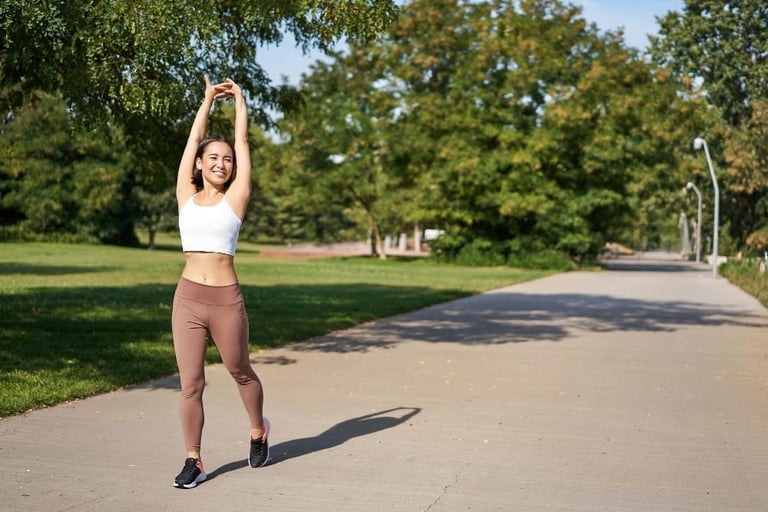How Exercise Boosts Mental Health
How Exercise Boosts Mental Health. Movement is a strong, natural, and easy help for mental health. It gives our brains the chemicals they need to stay healthy, it helps us forget our worries, it builds our confidence, and it helps us feel our bodies and be part of our communities.
FITNESS HH-360HEALTH & WELLNESSEVERYDAY LIFE
9/3/20252 min read
Connection Between Exercise and Mental Health
When we think about exercise, we often picture getting stronger or fitting into our favorite jeans. But moving our bodies can actually help our brain feel happier too. It’s like a special kind of medicine that can lift our spirits and make us feel better in ways we might not expect.
You might have heard the saying "movement is medicine," and it really is! When we get up and move around, it’s not just good for our bodies; it’s also great for our minds.
Science Made Clear and Easy
When you move, like during a workout, a walk with your dog, or dancing Around your living room, your brain releases chemicals called endorphins and dopamine. Think of them as natural mood boosters. These small chemicals can help you feel less stressed, feel less anxious, and even help with some feelings of sadness. It’s like your brain saying, “Thanks for the movement, here’s some happiness in return."
Instant Stress Relief
Ever notice how your problems feel just a little smaller after a workout? Exercise helps lower cortisol (that pesky stress hormone), which is why a walk after a long day can feel like hitting the reset button. It doesn’t erase your to-do list, but it makes it easier to handle.
Better Sleep, Brighter Days
Exercise and sleep have this beautiful relationship where each one makes the other better. Regular exercise helps you sleep better by keeping your body’s daily clock on track. This makes it easier to fall asleep and have deeper, more restful sleep. Better sleep means better mood regulation, improved focus, and more resilience to handle whatever life throws your way.
Confidence and Control
Moving your body can make you feel more confident. It’s not just about how you look, but about proving you can set a goal and follow through. Feeling in control in one part of life helps with other parts too, and that’s good for your mental health.
Social Bonus Points
Not all movement has to be a solo mission. Group classes, team sports, or even a friend to walk with can bring connection into the mix. Human interaction + movement = double the mood boost.
No “Perfect” Workout Required
Here’s the best part: exercise doesn’t have to be hard. You don’t need burpees, long runs, or heavy lifting (unless you like that). The mental health benefits come from small, regular movement—like stretching, yoga, bike rides, or even gardening. What matters is consistency, not intensity.
The Bottom Line
Exercise isn’t a miracle cure, and it isn’t a replacement for therapy or medicine when those are needed. But it is a useful tool—free, easy to get, and always available—that can make daily life feel easier and happier. So next time you feel stressed or stuck, maybe skip the extra coffee and go for a quick walk instead. Your brain will thank you.



